Machines are used in various industries to perform a range of functions. However, the accuracy and reliability of machines can decrease over time, which can lead to erroneous results, downtime, or even accidents. This is where machine calibration comes in. Calibration is a process of adjusting and verifying the performance of machines to ensure that they operate accurately and within defined specifications. Read More…
Custom Calibration specializes in on-site and laboratory calibration which will keep costly equipment downtime to a minimum and maximize your overall productivity. We have over 30 years of experience providing calibration services for mechanical, dimensional, scale, torque, humidity, and many more applications. Our company’s mission is to achieve total customer satisfaction by providing prompt, ...
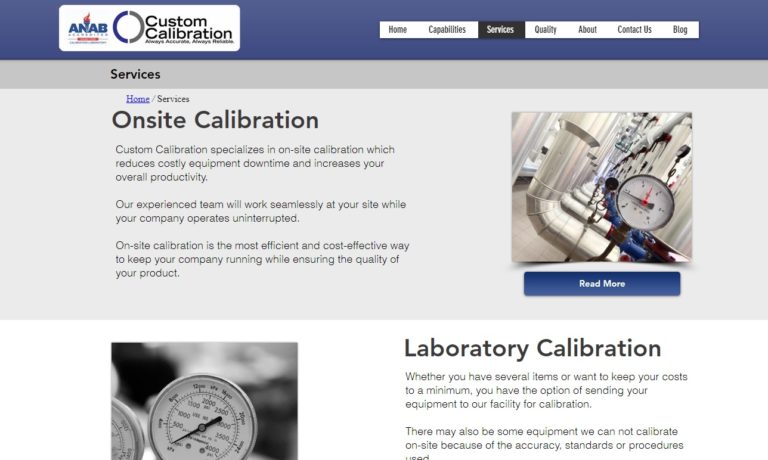
ISO/IEC 17025:2017 & ANSI/NCSL Z540.3 Accredited Laboratory. Electronic, dimensional, physical and thermodynamic calibrations performed onsite and in our lab. Professional ASQ Certified Calibration Technicians. We support the manufacturing and service sectors including; aerospace, automotive, chemical, electronic equipment, energy, food, industrial, machinery, medical, metal, military, nuclear,...
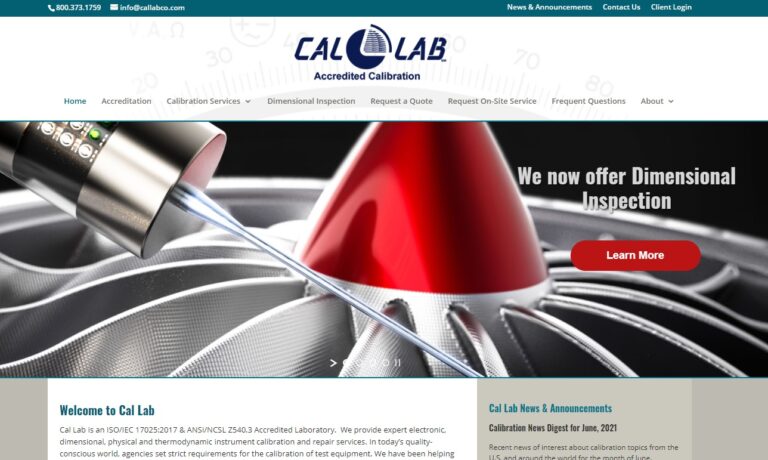
Continental Testing specializes in calibration, repairs, and testing services for the aviation industry. We have dimensional, electrical, lighting, physical, chemistry, and avionics testing capabilities. We offer on-site testing in at least 30 states and provide expert services in aviation, railroad, plumbing, electronics, tool & die, and construction sectors.
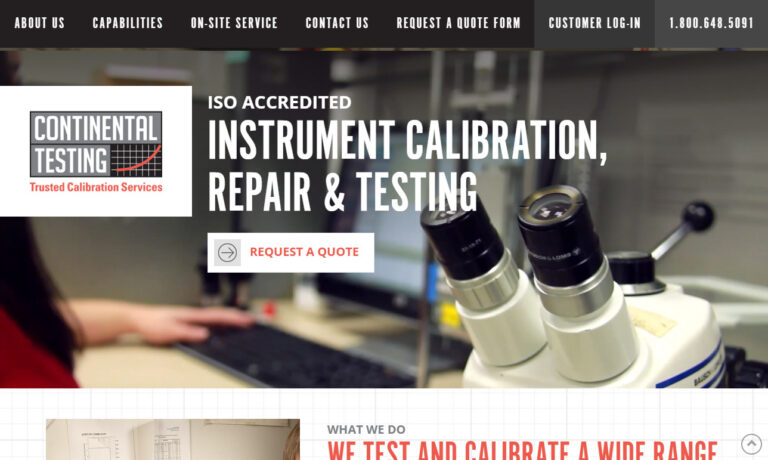
At Cross Precision Measurement, we are dedicated to providing industry-leading products, services, and capabilities to meet the diverse needs of our clients. Our expertise lies in delivering precise measurement solutions that enhance operational efficiency and ensure the highest standards of quality. We pride ourselves on our state-of-the-art equipment and innovative approaches, making us a...

In a world where precision is paramount, Constellation PowerLabs stands as a beacon of trust, offering calibration services that transcend mere measurements. We are a partner in progress, working hand-in-hand with organizations to enhance their operations through the lens of accuracy, quality, and reliability. When you choose Constellation PowerLabs, you choose a steadfast commitment to...

Sierra provides accurate calibration services for mass flow meters and controllers, insertion thermal flow meters, vortex, and ultrasonic flow meters. With more than 40 years of expertise in gas, air, or liquid flow calibration, you can count on our team to make sure your flow meter operates with efficiency and pinpoint accuracy. We believe in providing personalized and customized service, and...
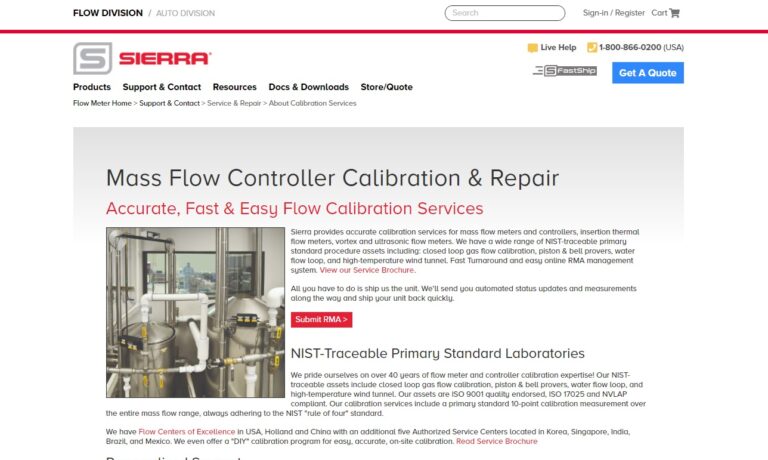
Kent Machine, Inc., founded in 1980, is devoted to excellence in calibration and repair of electronic and physical/dimensional test equipment. We offer calibration to accommodate the customer with large quantities of equipment to calibrate, eliminating downtime or expense of sending the equipment out, and for equipment too large to move. Visit our website today to learn more about our calibration ...

More Machine Calibration Manufacturers
Types and Processes of Machine Calibration
There are different types and processes of machine calibration, depending on the type of equipment and the intended application. Some common types of machine calibration include dimensional, temperature, pressure, and electrical calibration. Dimensional calibration involves verifying the accuracy of linear and angular measurements, while temperature calibration is used to determine the accuracy of temperature readings. Pressure calibration is used to ensure the accuracy of pressure measurements, and electrical calibration is used to verify the accuracy of electrical measurements.
Machines That Require Calibration
There are many types of machines that require calibration, including manufacturing equipment, laboratory equipment, medical equipment, aerospace equipment, and automotive equipment. Manufacturing equipment such as CNC machines, milling machines, and lathes require dimensional, temperature, pressure, and electrical calibration to ensure their accuracy. Laboratory equipment, such as pipettes, balances, thermometers, and pH meters, require temperature, mass, volume, and pH calibration. Medical equipment, such as blood pressure monitors, ventilators, and thermometers, require pressure, flow, and temperature calibration. Aerospace equipment, such as altimeters, accelerometers, and gyroscopes, require dimensional, temperature, pressure, and electrical calibration. Lastly, automotive equipment, such as tire pressure gauges, engine analyzers, and alignment machines, require dimensional, temperature, and pressure calibration.
Considerations Regarding Machine Calibration
While machine calibration is essential for maintaining the accuracy and reliability of machines, it does have some considerations. For instance, calibration can be expensive, particularly for machines that require extensive testing and verification. Additionally machine calibration can be time-consuming. Finally, machine calibration requires skilled technicians who are trained to perform the calibration process accurately. Otherwise, human error can lead to inaccurate calibration, which can cause equipment failure or inaccuracies in results.
Benefits of Machine Calibration
Despite these considerations, they are easily outweighed by the benefits of machine calibration which include:
Accuracy
Calibration ensures that machines perform within their specified accuracy, which ensures that the equipment produces reliable results. By calibrating machines, users can minimize the risk of errors and improve the quality of products.
Compliance
Many industries, such as aerospace, medical, and manufacturing, require that equipment meets specific standards and regulations. Calibration ensures that the equipment meets the necessary standards and compliance requirements, which can save companies from legal liabilities and financial penalties.
Efficiency
Calibrated machines are more efficient than non-calibrated machines. By performing calibration, users can minimize downtime and improve productivity, which can lead to increased profits.
Potential Cost Savings
Calibrated machines can save users money in the long run. By ensuring that machines operate optimally, users can avoid costly repairs and replacements. In addition, calibration can prevent errors, which can lead to costly rework and scrap.
Extended Equipment Life
Regular calibration can extend the life of equipment. By detecting potential problems early on, users can address them before they cause significant damage to the equipment.
Improved Safety
Calibrated machines are safer than non-calibrated machines. By ensuring that machines operate within their specified limits, users can minimize the risk of accidents and injuries.
Better Customer Satisfaction
Calibrated machines can improve customer satisfaction. By producing high-quality products, companies can build trust with customers, which can lead to increased sales and repeat business..
In-house Calibration vs. Calibration as a Service
Calibration can be done in-house or by a third-party calibration service. In-house calibration has the advantage of being cost-effective and convenient, but it requires skilled personnel and specialized equipment. Calibration as a service, on the other hand, offers a faster turnaround time, traceable results, and can be more cost-effective for companies that do not have the resources for in-house calibration.
Determining the Need for Machine Calibration
There are several signs that indicate that a machine requires calibration. These include equipment malfunction, scheduled maintenance, regulatory requirements, and changes in equipment usage or environment. It is essential to determine when a machine requires calibration to avoid equipment breakdown, errors, and accidents.
Contacting a Machine Calibration Service
When it is time to calibrate a machine, there are several ways to find a calibration service provider. These include conducting an online search, seeking referrals from colleagues or equipment manufacturers, and going through the request for proposal (RFP) process. Once a calibration service provider is identified, the next step is to negotiate a contract, which includes the scope of work, pricing, and turnaround time.
Choosing the Right Machine Calibration Service
To ensure you have the most positive outcome when choosing a machine calibration service, it is important to compare several companies using our directory of machine calibration services. Each machine calibration service has a business profile page highlighting their areas of experience and capabilities, along with a contact form to directly communicate with the company for more information or to request a quote. Review each machine calibration service website using our patented website previewer to quickly learn what each company specializes in. Then, use our simple RFQ form to contact multiple machine calibration services with the same form.

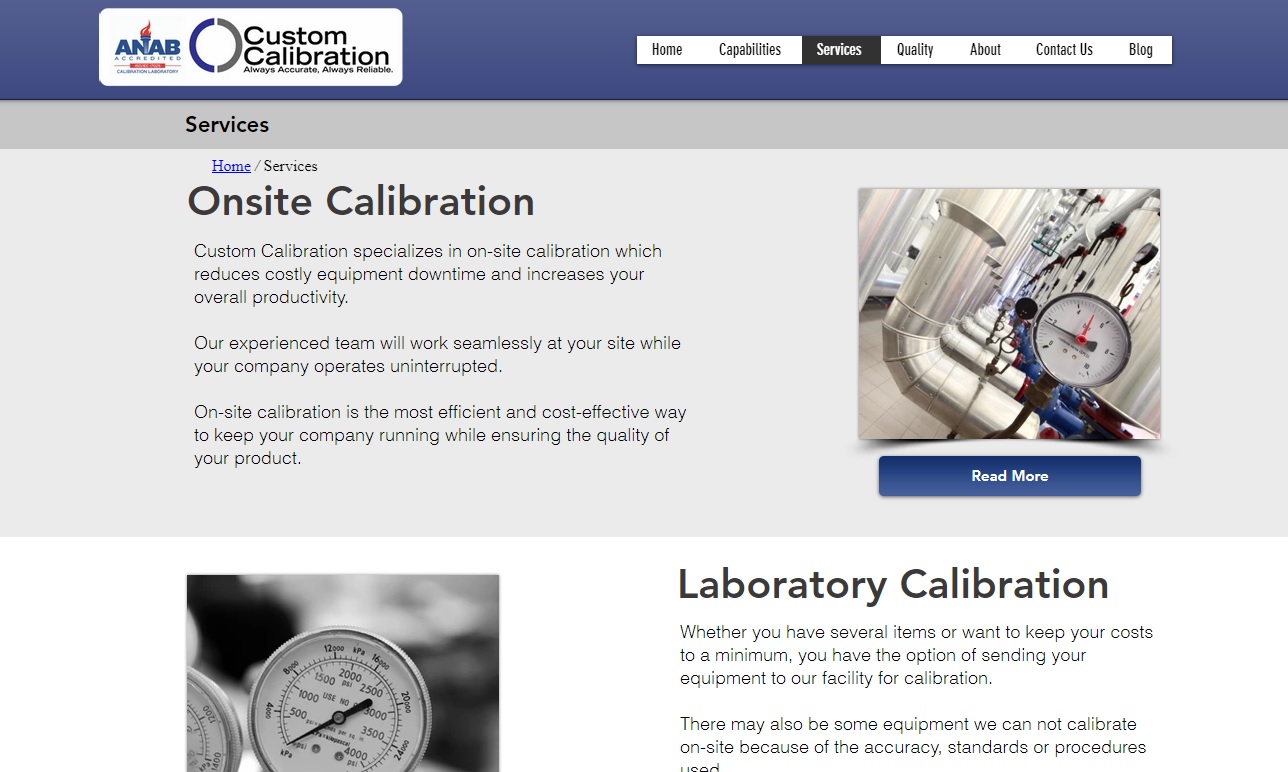
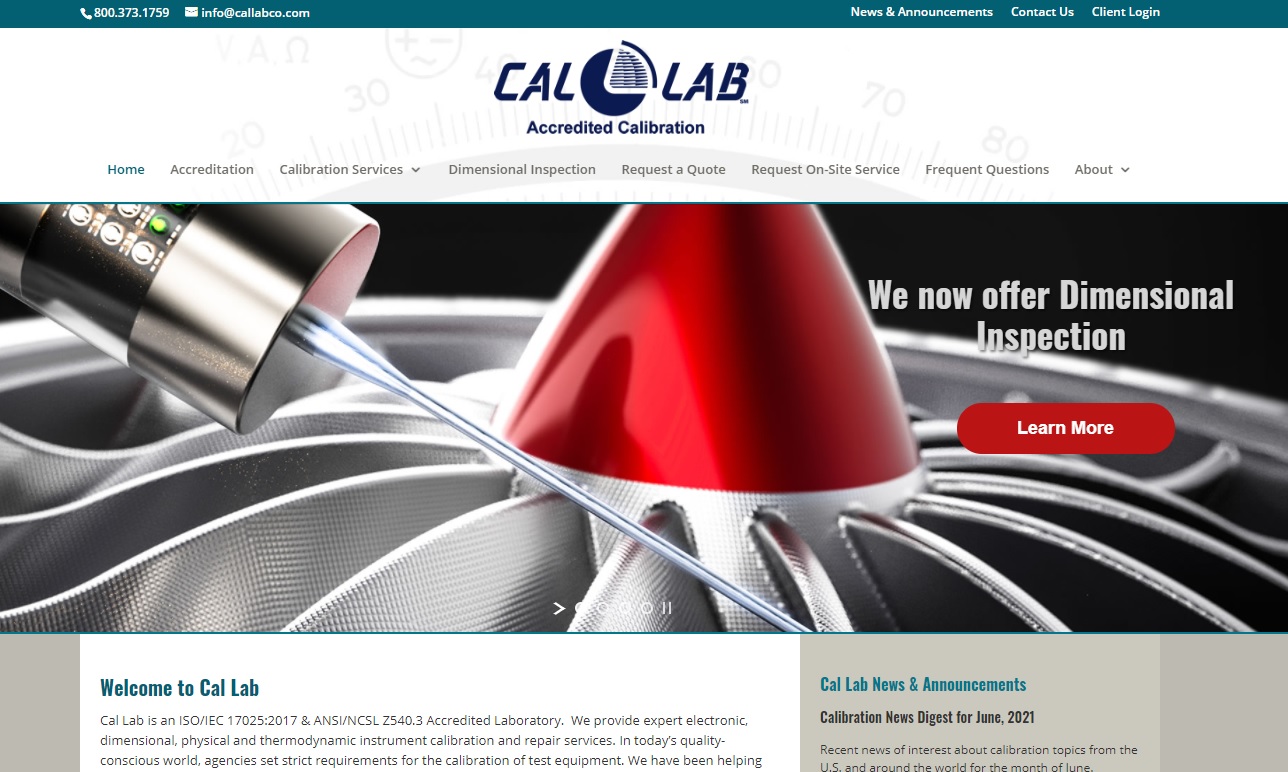
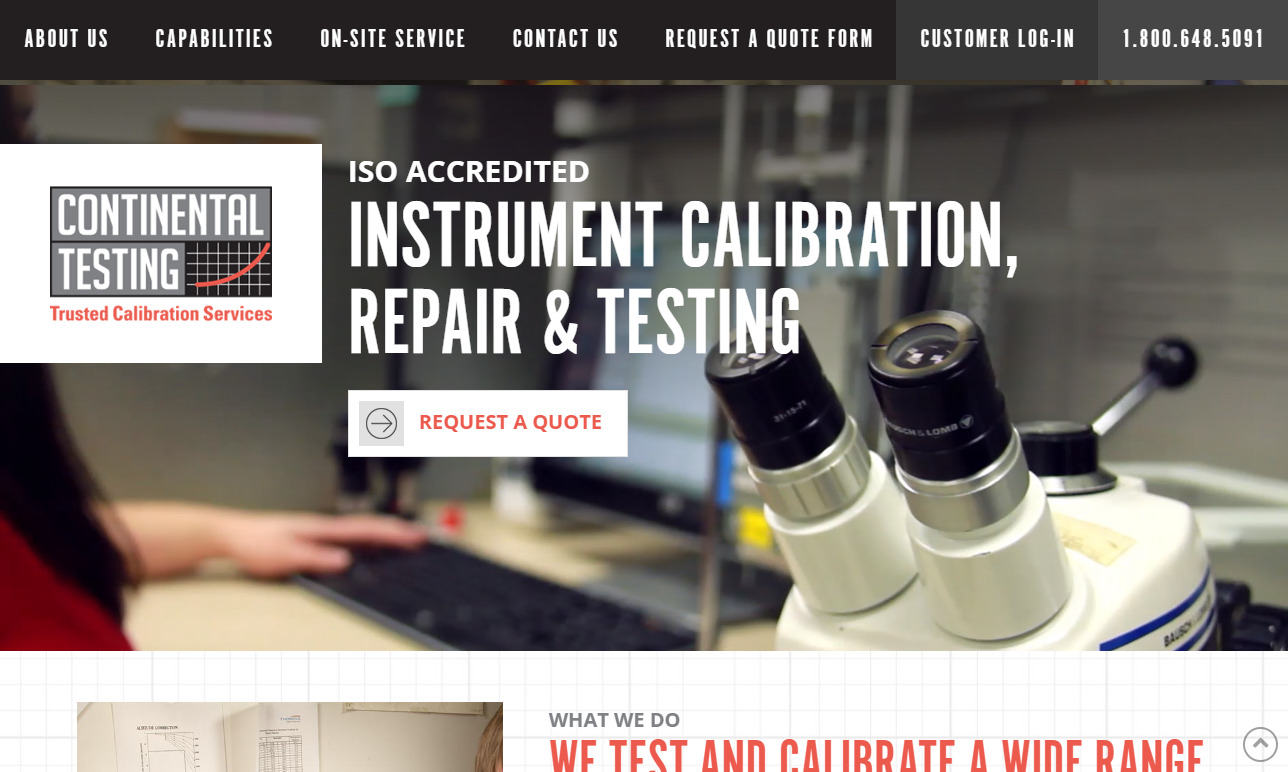


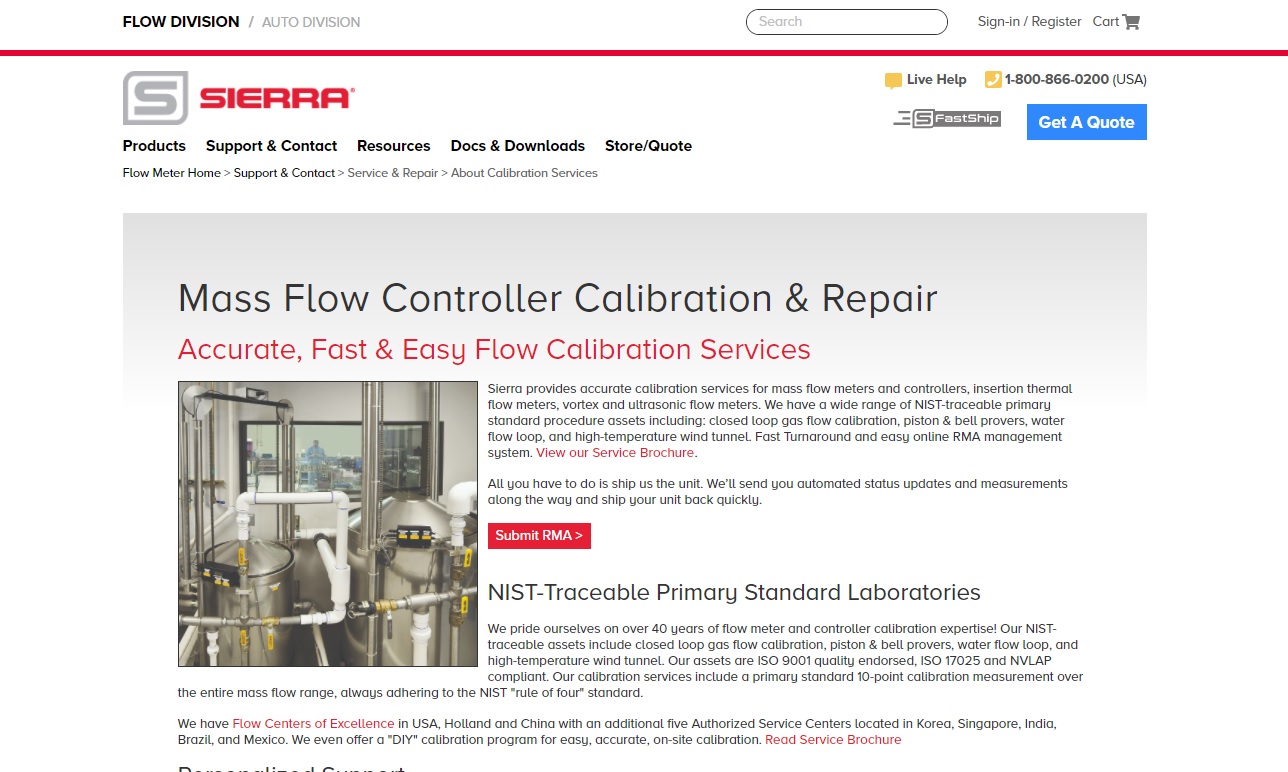
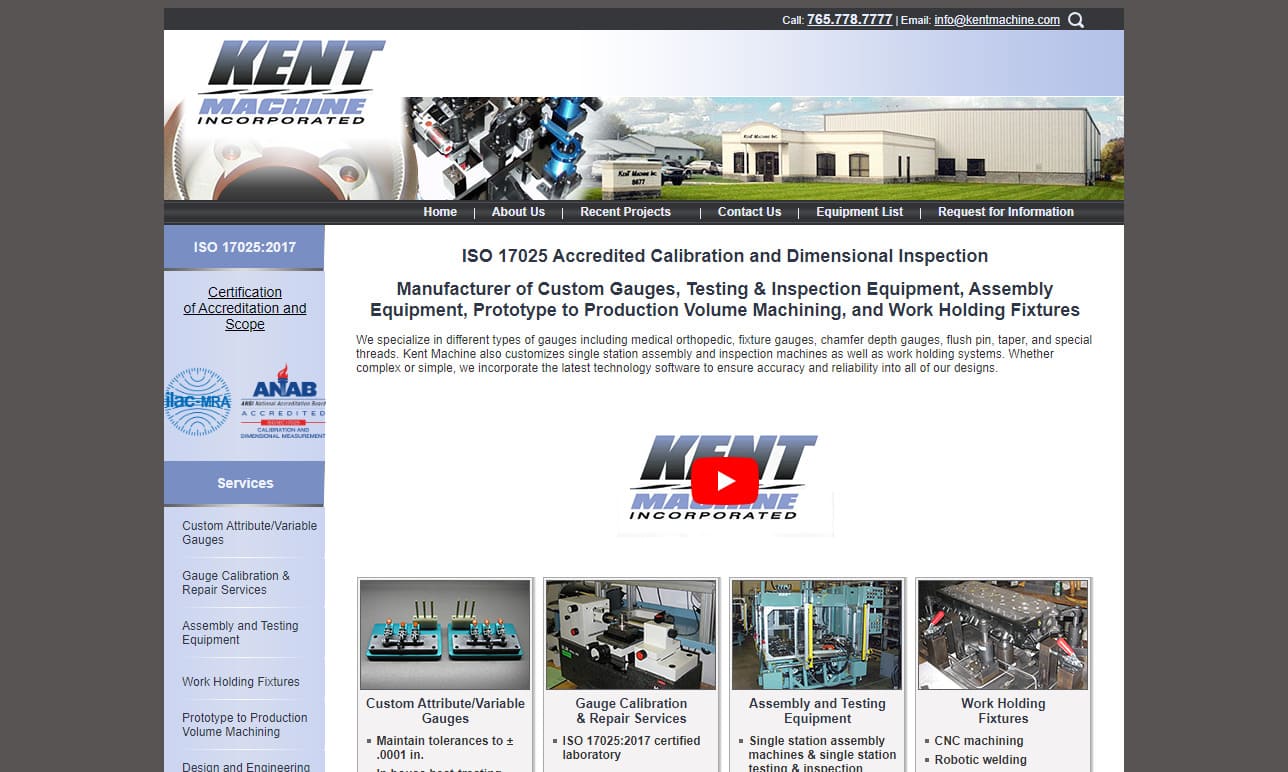
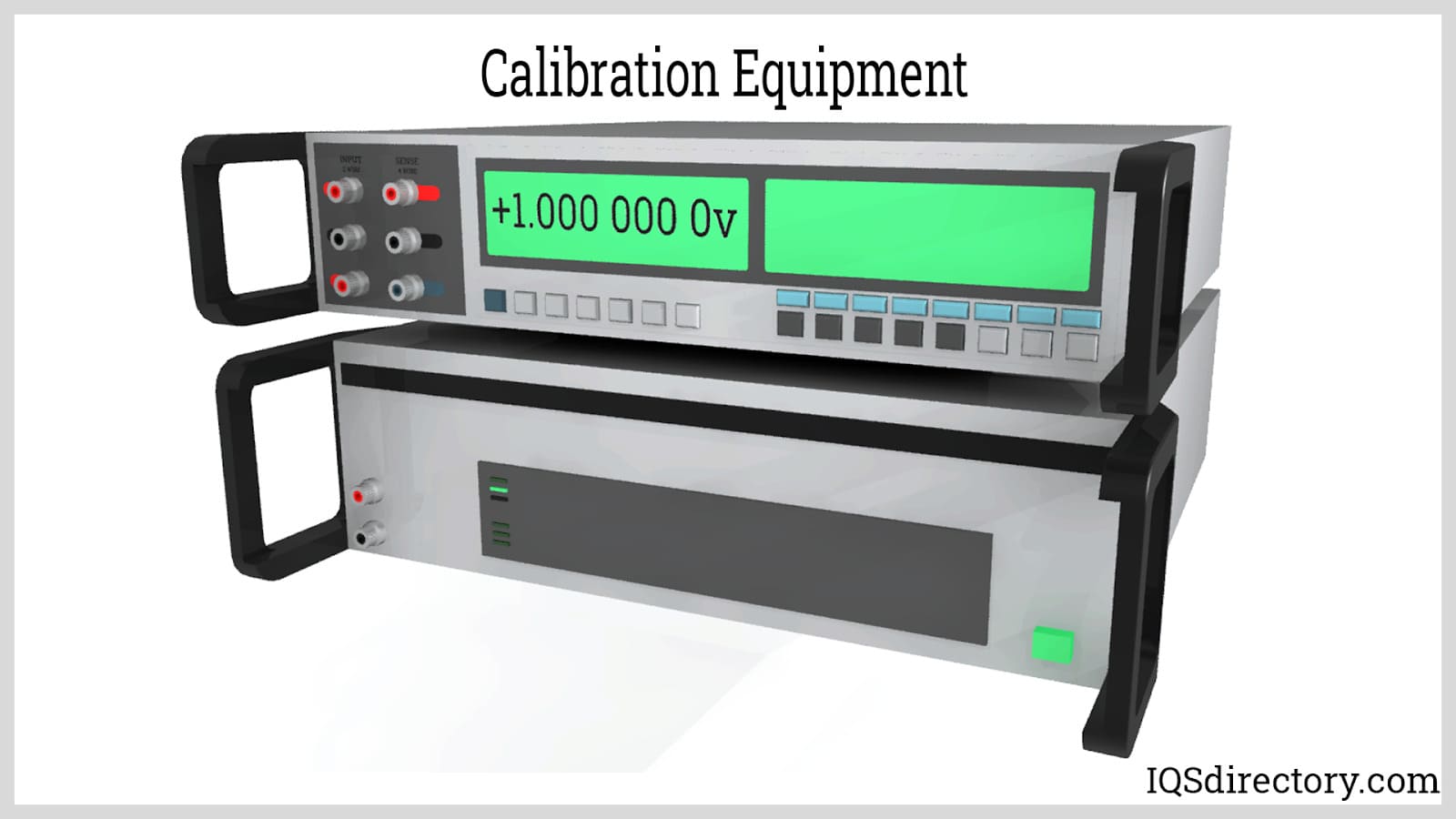
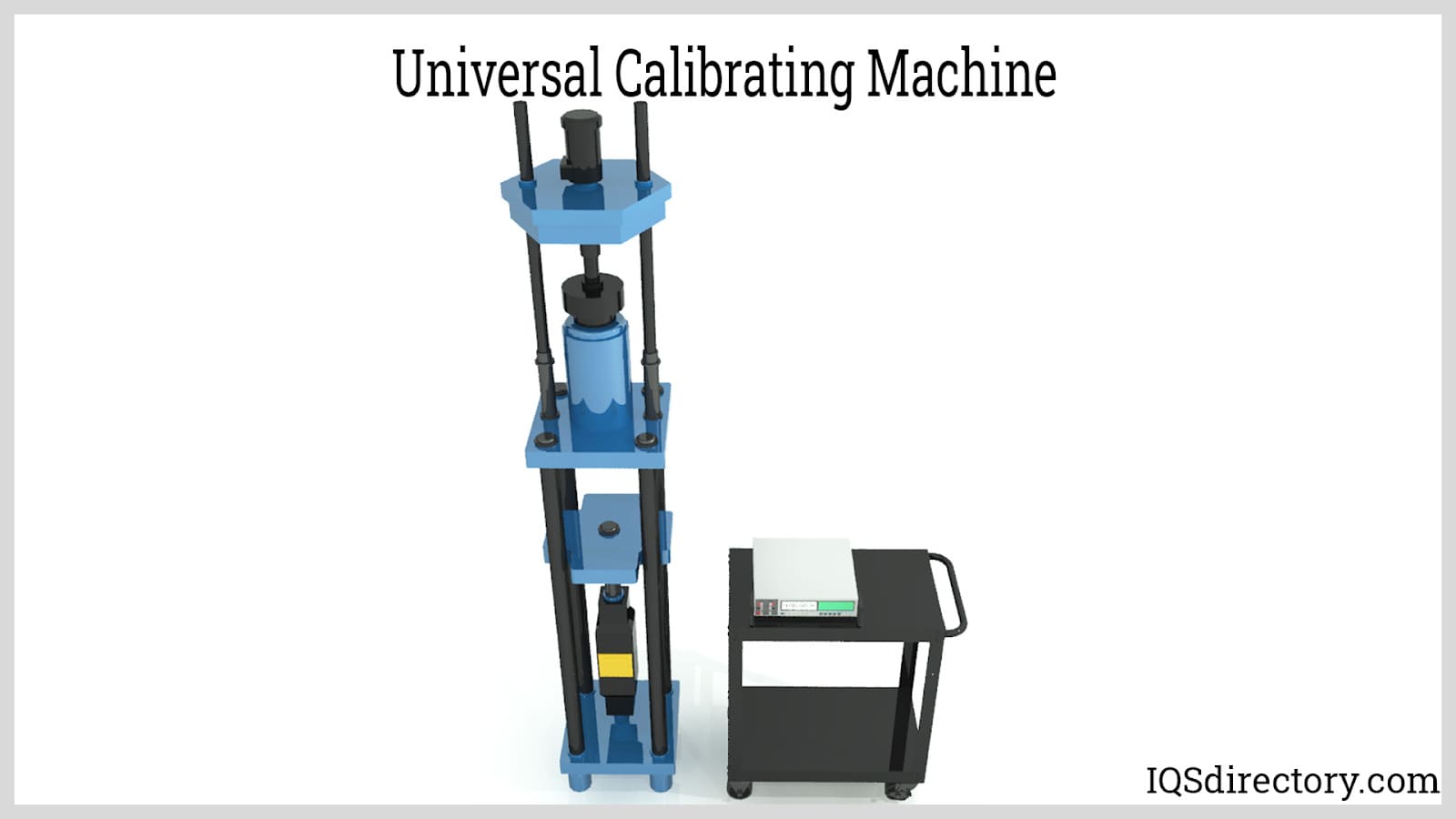
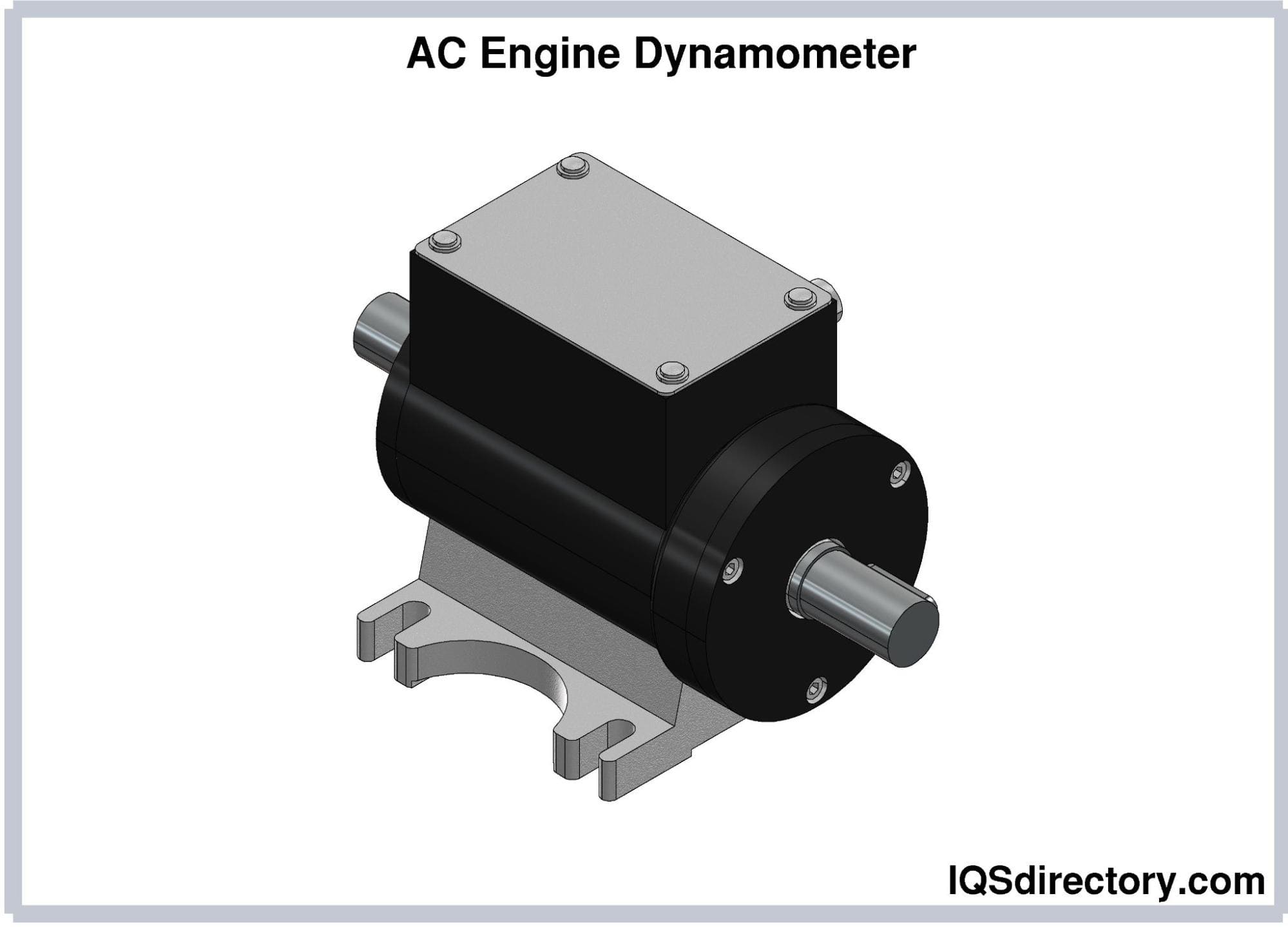
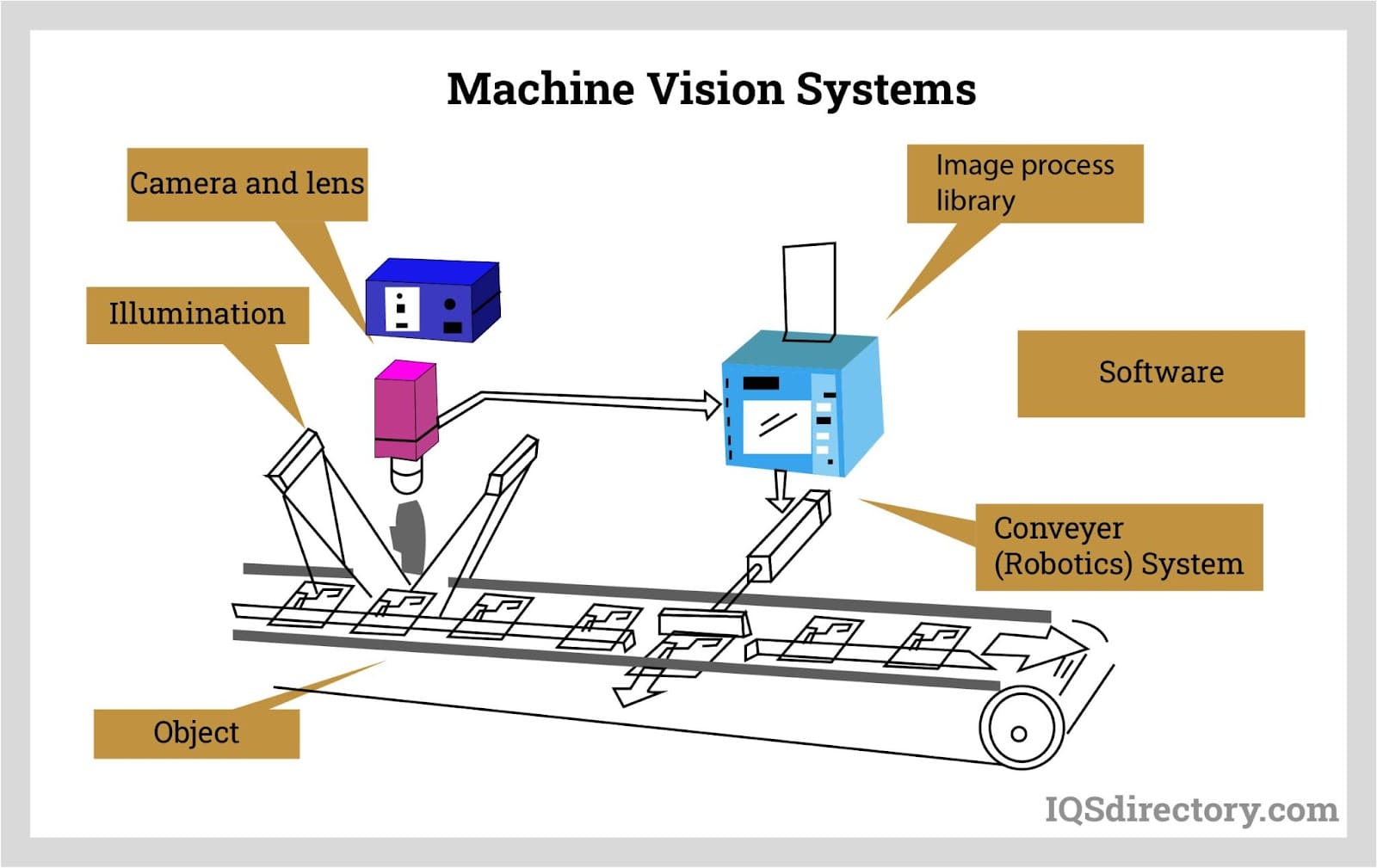
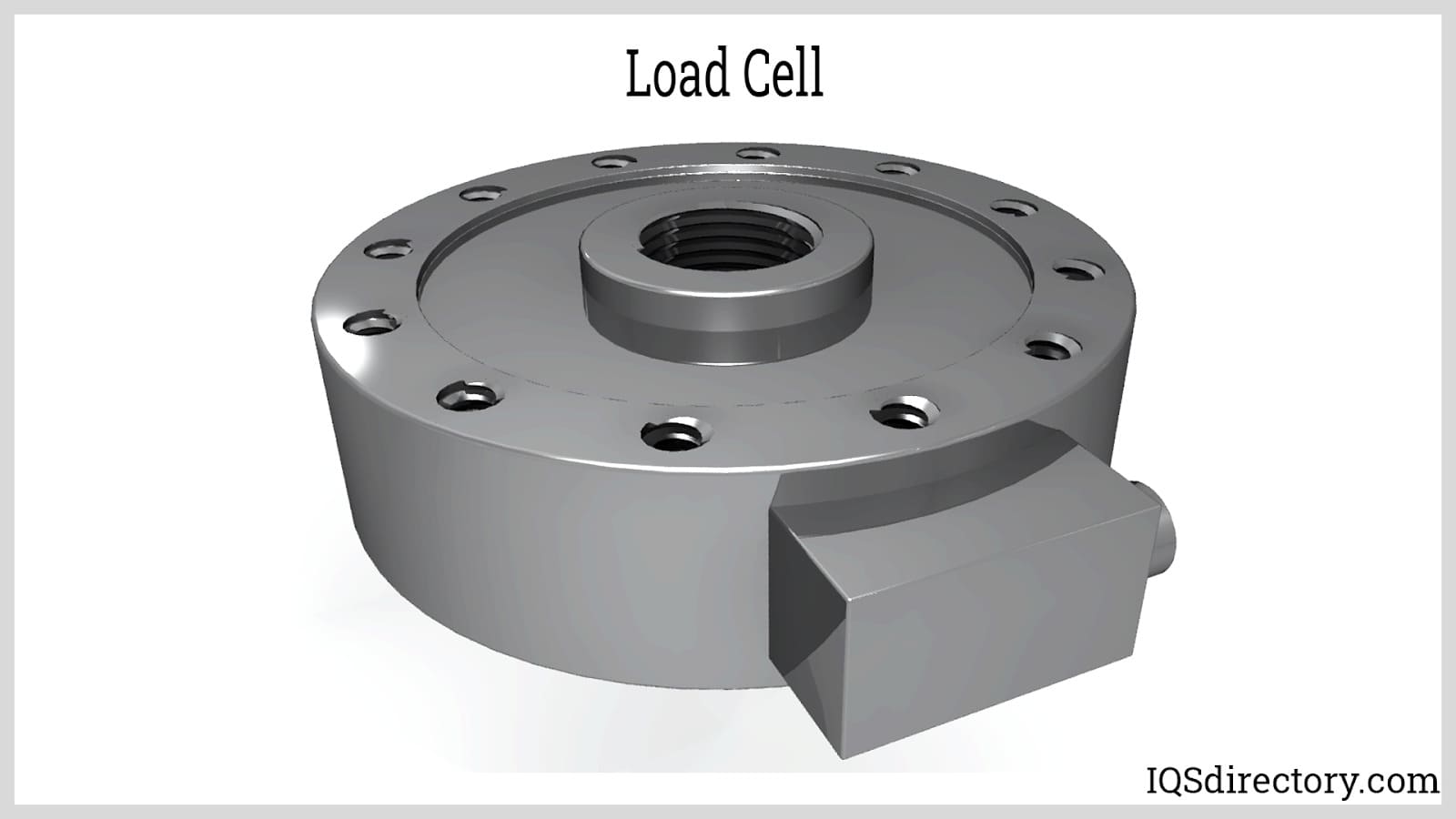
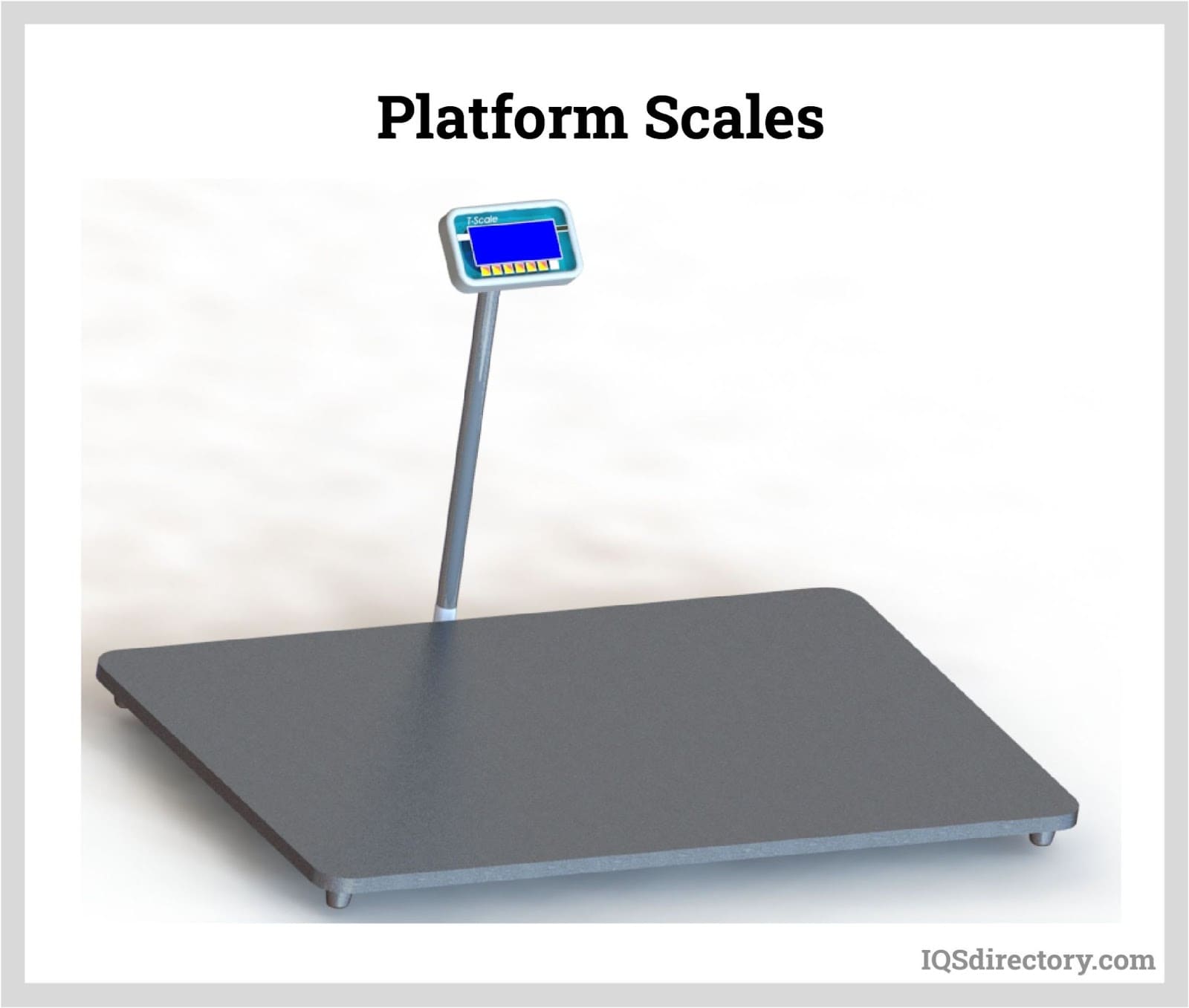
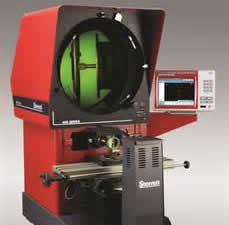 Calibration Services
Calibration Services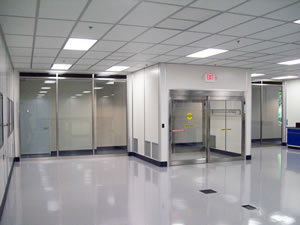 Clean Rooms
Clean Rooms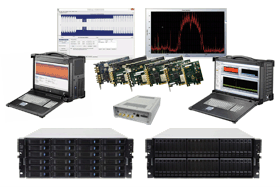 Data Acquisition Systems
Data Acquisition Systems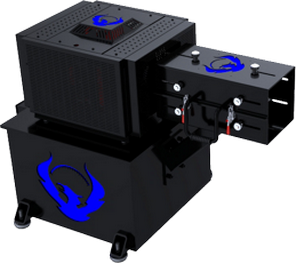 Dynamometers
Dynamometers Environmental Test Chamber
Environmental Test Chamber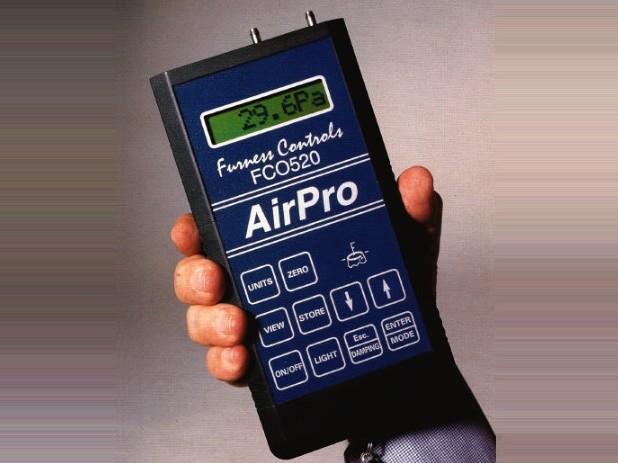 Leak Detectors
Leak Detectors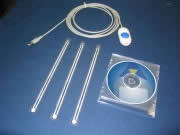 Load Cells
Load Cells Machine Vision Systems
Machine Vision Systems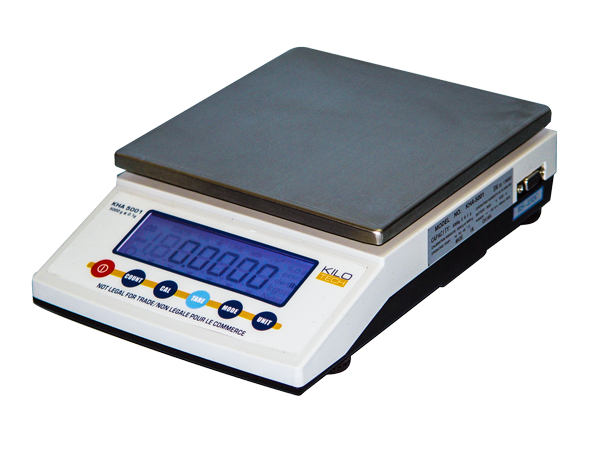 Scales
Scales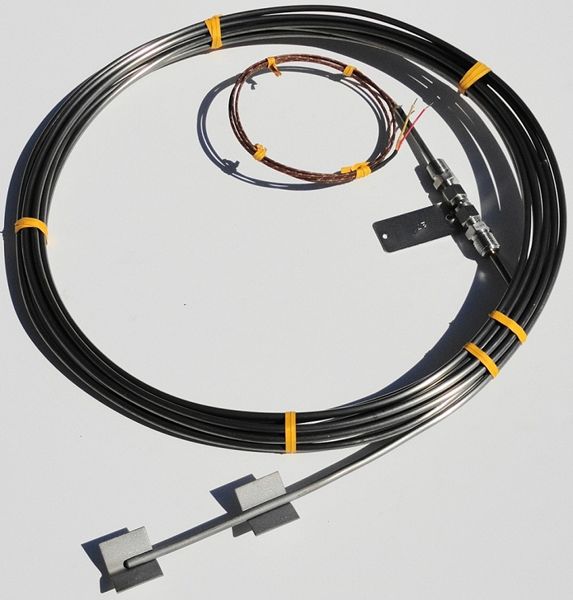 Thermocouples
Thermocouples Castings & Forgings
Castings & Forgings Bulk Material Handling
Bulk Material Handling Electrical & Electronic Components
Electrical & Electronic Components Flow Instrumentation
Flow Instrumentation Hardware
Hardware Material Handling Equipment
Material Handling Equipment Metal Cutting Services
Metal Cutting Services Metal Forming Services
Metal Forming Services Metal Suppliers
Metal Suppliers Motion Control Products
Motion Control Products Plant & Facility Equipment
Plant & Facility Equipment Plant & Facility Supplies
Plant & Facility Supplies Plastic Molding Processes
Plastic Molding Processes Pumps & Valves
Pumps & Valves Recycling Equipment
Recycling Equipment Rubber Products & Services
Rubber Products & Services